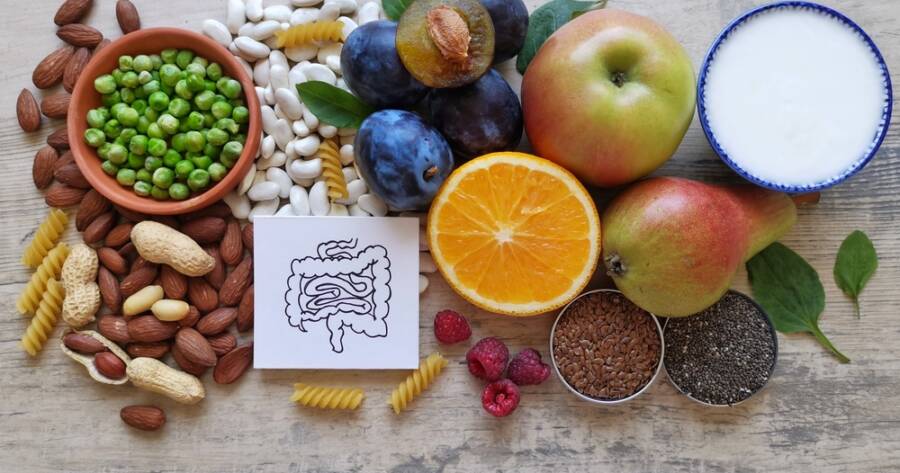The importance of gut health extends beyond digestion to influence immunity and overall well-being, highlighting the critical role of the gastrointestinal microbiome. Dietary adjustments, particularly those rich in probiotics and prebiotics, are fundamental in nurturing this delicate balance. Beyond food choices, reduced sugar intake, stress management, and lifestyle factors such as exercise, hydration, and sleep play crucial roles in maintaining gut health. These insights offer pathways to foster a healthy gut and enhance overall vitality.
Understanding Gut Health
Gut health, a term increasingly in the spotlight, refers to the balance and functioning of the microbiome within the gastrointestinal tract. This microbiome, an ecosystem comprising trillions of microorganisms, plays a vital role in digestion, immunity, and overall well-being contributing to the metabolism of various nutrients and essential bodily functions. These microbial communities are responsible for metabolizing and breaking down complex carbohydrates and fiber, producing short-chain fatty acids, and synthesizing vitamins.
The state of an individual’s digestive health is closely linked to the diversity and balance of these microorganisms. An imbalance, known as dysbiosis, can lead to numerous health problems such as infections, digestive illnesses, and metabolic disorders as a consequence of disrupted motility. Maintaining a healthy gut microbiome not only supports digestion but also plays a crucial role in cardiovascular and immune system health.
Natural Dietary Adjustments for Gut Flora
To improve gut flora naturally, dietary changes are often the first step. A varied, plant-based diet is key to nurturing a diverse microbiome emphasizing dietary fiber intake found in fruits, vegetables, legumes, and whole grains, which all promote digestive health and feed beneficial gut bacteria. Consuming at least 30 types of plant-based foods weekly enhances microbial diversity and overall gut health.
Probiotic and prebiotic foods are crucial components in the journey toward better gut health. Probiotics, including fermented options such as kimchi, kefir, and sauerkraut, help replenish beneficial bacteria in the gut. Meanwhile, prebiotics, non-digestible carbohydrates present in foods like onions, garlic, and bananas, function as fuel for this bacteria, ensuring they thrive and maintain balance for improved digestive function.
Reduced Sugar and Stress for Gut Health
Cutting down on sugar and artificial sweeteners is another effective strategy to stop gut dysbiosis. These dietary substances can promote the growth of harmful bacteria, leading to an imbalance that compromises overall health by negatively influencing microbial communities. Similarly, managing stress through techniques such as meditation or deep breathing can improve gut health. Chronic stress is known to disrupt natural processes in the gut, so it’s crucial to employ regular physical activity and maintain healthy sleep patterns to aid stress reduction.
More Than Diet: Lifestyle Considerations
In addition to diet, lifestyle factors significantly impact gut health. Regular exercise and adequate hydration techniques contribute positively, supporting both digestion and microbial diversity. Engaging in physical activities like walking or cycling aids in stress reduction and improves the gut microbiome’s composition helping act as a buffer against stress. Similarly, drinking water aids in breaking down food and absorbing nutrients, which is necessary for a healthy gut environment.
Antibiotics, while sometimes necessary, can lead to imbalances by eradicating both harmful and beneficial bacteria posing a risk of antibiotic resistance and should thus be used responsibly. Seeking alternatives with professional advice can help mitigate these risks. Moreover, sleep is another crucial factor, with quality rest being necessary for maintaining a healthy gut and overall well-being.
Why You Should Learn More About Gut Health Today
Improving gut flora using natural methods is pivotal not only for digestive health but for well-being that encompasses immune function and mental health. Through a balanced diet enriched with probiotics and prebiotics, and by adopting healthy lifestyle practices, individuals can foster a well-functioning gut microbiome. Understanding the intricate relationship between gut health and other bodily functions can empower individuals to make informed choices, leading to improved health outcomes. Exploring these aspects further can provide a deeper understanding of how interconnected nutrition and lifestyle habits affect gut flora and, by extension, overall health.
Sources
The Role of Microbiome in Health
Managing Stress and Gut Health
Improving Gut Health Naturally
